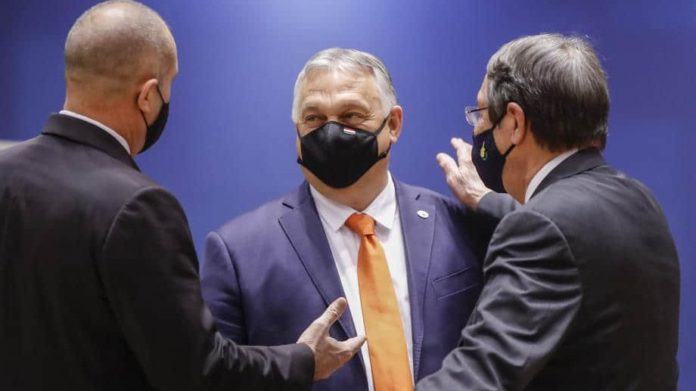
For his part, Hungarian Prime Minister Viktor Orban argues the law “does not contain any discriminatory elements”, because it is only designed to protect the rights of children, guarantee the rights of parents, and does not apply to the sexual orientation rights of those over 18 years of age. He branded the statement by von der Leyen as “shameful because it is based on untrue allegations”.
On Thursday, EU commissioners Thierry Breton and Didier Reynders claimed the bill would violate the bloc’s media and tech laws, as it “unjustifiably” limits the television and online content currently regulated in the EU under the Audiovisual Media Services Directive and the e-Commerce Directive.
Upping the ante, more than half of EU member states signed a joint declaration voicing “grave concerns” over the law and calling for the Commission to act over this “flagrant form of discrimination”. Belgium, the main driver behind the letter, approached all 27 member states asking them to put their name to the letter. Notably, all the largest members – such as Germany, France, Italy and Spain – were among the 17 signatories, though Hungary’s Central European neighbours – Czechia, Poland and Slovakia – all declined to sign it.
The reason for the Czech refusal to sign is unclear – even, it appears, to the government itself. Local media reported that Czech representatives in Brussels told them that the Belgian initiative went through the government in Prague. The Czech government office said that, frankly, they did not know why there was no Czech signature.
Prime Minister Andrej Babis said on Thursday morning, as he arrived in Brussels ahead of the summit, that he wants to discuss the issue with Orban. The leaders were due to meet at a pre-summit coordination meeting of the Visegrad Four (V4) group. “It needs to be explained thoroughly… I can’t judge it, we agreed that we would have it explained in the V4 to be sure that the interpretations are correct,” Babis told reporters.
The prime minister added that Czechia is a liberal country supporting the rights of sexual minorities and that he has discussed the issue with Luxembourg Prime Minister Xavier Bettel, the only openly gay leader of an EU country. He said he also plans to consult with Czech Foreign Minister Jakub Kulhanek.
Poland, naturally, did not sign the letter that committed to “continue fighting against discrimination towards the LGBTI community.” This was no surprise given the campaign that the Warsaw government has waged against sexual minorities over the past few years. During that time, a third of Polish municipalities have adopted resolutions against “LGBT ideology”, while Education Minister Przemyslaw Czarnek announced a series of reforms, among which is restricting access to sexual education and replacing it with the promotion of the “traditional family” in schools.
Speaking earlier this week on German radio station RND, the Polish ambassador to Germany, Andrzej Przylebski, expressed sympathy for Hungary. Referring to the request from the Munich municipality (turned down by UEFA) to light its stadium in rainbow colours in protest at the new Hungarian legislation, the ambassador said he thought this kind of pressure on Budapest was “inappropriate and offensive”.
The ambassador added that the Hungarian parliament had the “unquestionable right to provide legal protection to children in schools, to protect them from homosexual themes”.
Slovak officials also remained silent on the issue and refused to protest the controversial law. While no official statement was released at the time of publication, news of Slovakia’s reticence was received disdainfully after a popular parody account’s take on the matter went viral.
“Guess which side Slovakia joined – the Middle Ages or the 21st century?” asked the account’s administrators in a Facebook post, which received more than 4,000 interactions and numerous aggrieved comments in less than a day.








